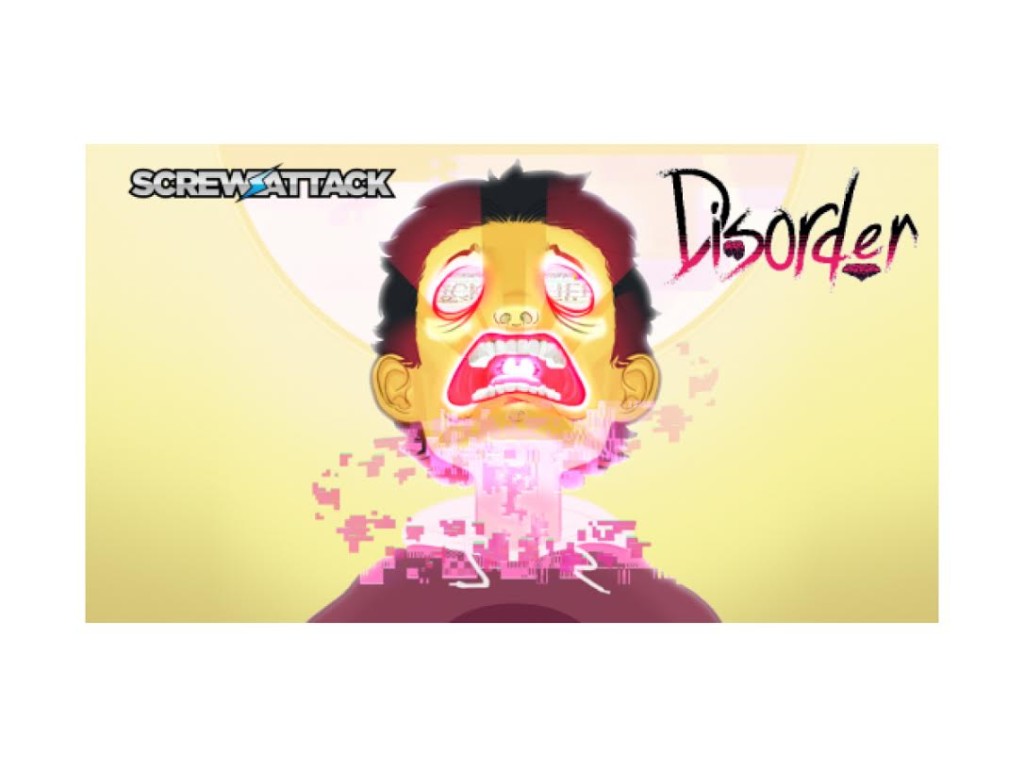
“Disorder” is a game about depression. As strange as that may seem, and given that games usually aren’t realistic about depicting real-world issues (which is why we’ll never see “God of War: Kratos visits his therapist for anger management”), “Disorder” does a fantastic job at doing just that. While the game is almost too short to purchase at full price, it’s nearly perfect in combining traditional platforming with a yarn about adolescent troubles.
“Disorder” starts in the dark and dirty home of the nameless protagonist. Our story’s hero is a boy in his late teens or early twenties who has long dark hair and a perpetual frown upon his face; if his hair was blonde, it’s possible I’d mistake him for Kurt Cobain. Right off the bat, the game brings the discussion about mental illness in the spotlight. The protagonist walks down a long hallway barely lit with flickering lights. On your slow walk to the stage selection area, the main controls — “w,” “a” and “d” to move and jump, and “p” to pause — appear as highlighted letters among black, ominous graffiti that reads “when I knew he was dead” and “I need to pause.” It’s a pretty unique way to both introduce the primary mechanics and set the tone for the game as a whole, as well as provide some understanding of what the nameless protagonist is going through.
As a 2D platformer, “Disorder” does a great job incorporating its story into the gameplay experience. Throughout the different levels, you pass by little snippets of writing, which are indicators that the character is writing in his journal. Through these disconnected passages, you learn about the rough upbringing and broken home the protagonist grew up with. The writing in his journal almost never falls into unimaginative territory, and is surprisingly elegant for a young man. Rather than just place the blame for his mental illness onto a single target, our hero creates a detailed narrative that balances out the different forces that can be realistic causes for depression.
This turns out to be both a powerful narrative tool and an informative tool for those who know little about depression. The protagonist informs us about his troubled childhood — his absent parents, school bullying, anger that is internalized from too much alone time, juvenile delinquency with a younger brother. While you learn about his brother’s death, and the negative impact it has on his already-fragile mind, the moral of “Disorder” is to not fall into the trap the protagonist trips into: that a black-and-white viewing lens on mental illness is ultimately tragic.
The gameplay is simple, but pretty great. The platforming takes place between a light and dark world that symbolizes the protagonist’s fractured mind. Different parts of a level will disappear and reappear depending on when you change worlds, and the neat part is that players have to navigate through both parts of the world to get through the levels. It even gets to the point where players have to switch between worlds multiple times in a matter of seconds to traverse walls and platforms that come and go. This style of gameplay mirrors the struggle that living with depression or bipolar disorder can be.
Also, the different little snippets of journal entries you come across change depending on which world you’re in. If in the light world, an entry can be cheerful and optimistic; if in the dark world, the writing will be rather introspective, frightening and self-loathing. While the whole switching-between-two-different-worlds in a platformer isn’t the most original idea, it’s neat that “Disorder” disregards that and invigorates its traditional platforming with an incredible and touching story.
The only major critique I’d have to bring up is that I wish the game was longer. While “Disorder” was fun to play, unfortunately, it’s only about an hour or so in terms of main content. And it’s a shame, because I purchased “Disorder” on Steam at full price (about $12), which for most gamers is a high cost for a game that doesn’t even stretch up to two hours.
“Disorder” is a fun indie game that does a lot of things at the same time. It’s a neat, stylized platformer that knows what it is. But even then, it isn’t afraid to use what would otherwise be OK gameplay to tell an emotional and informative story about growing up and living with mental illness.
Rating: 4 stars








